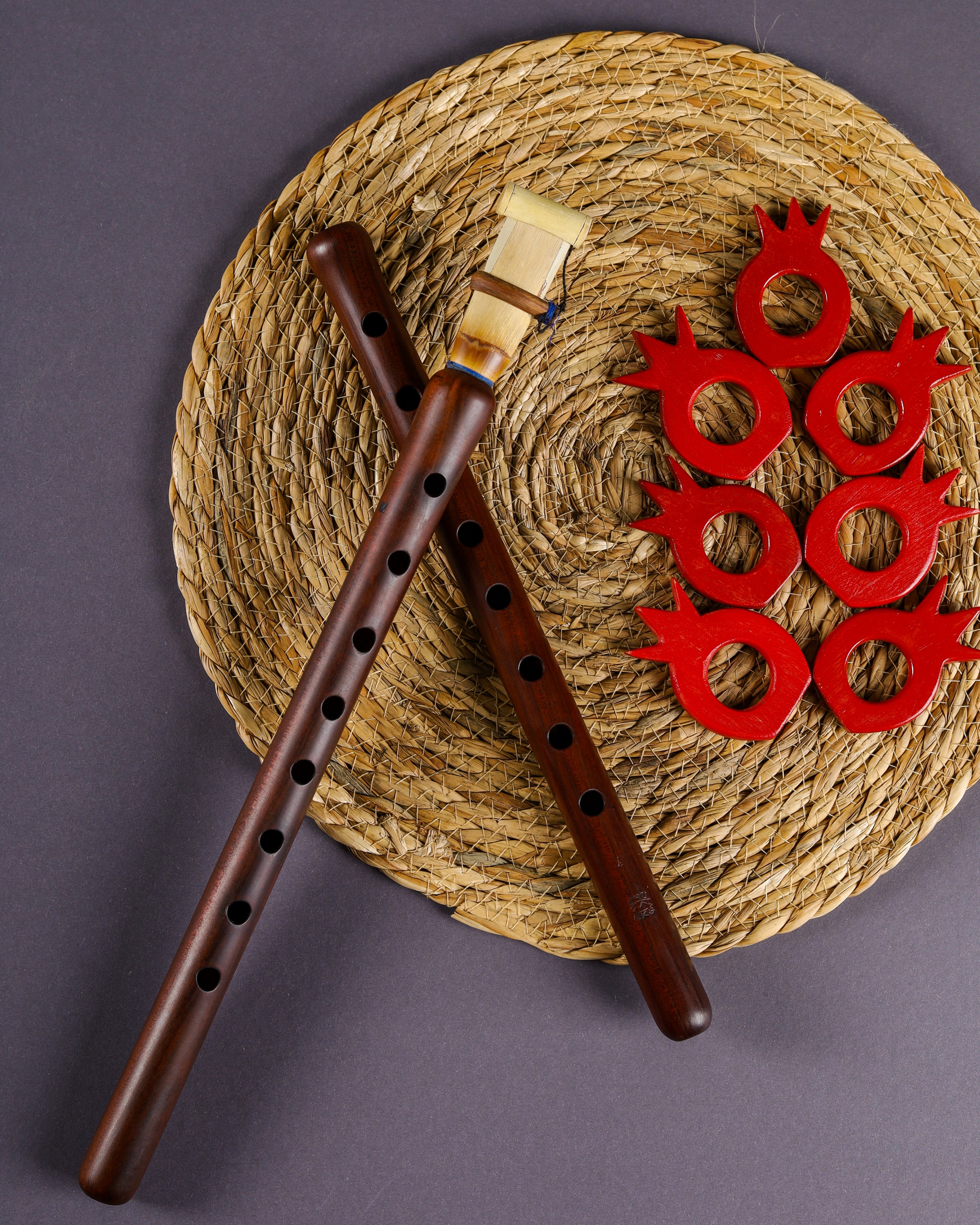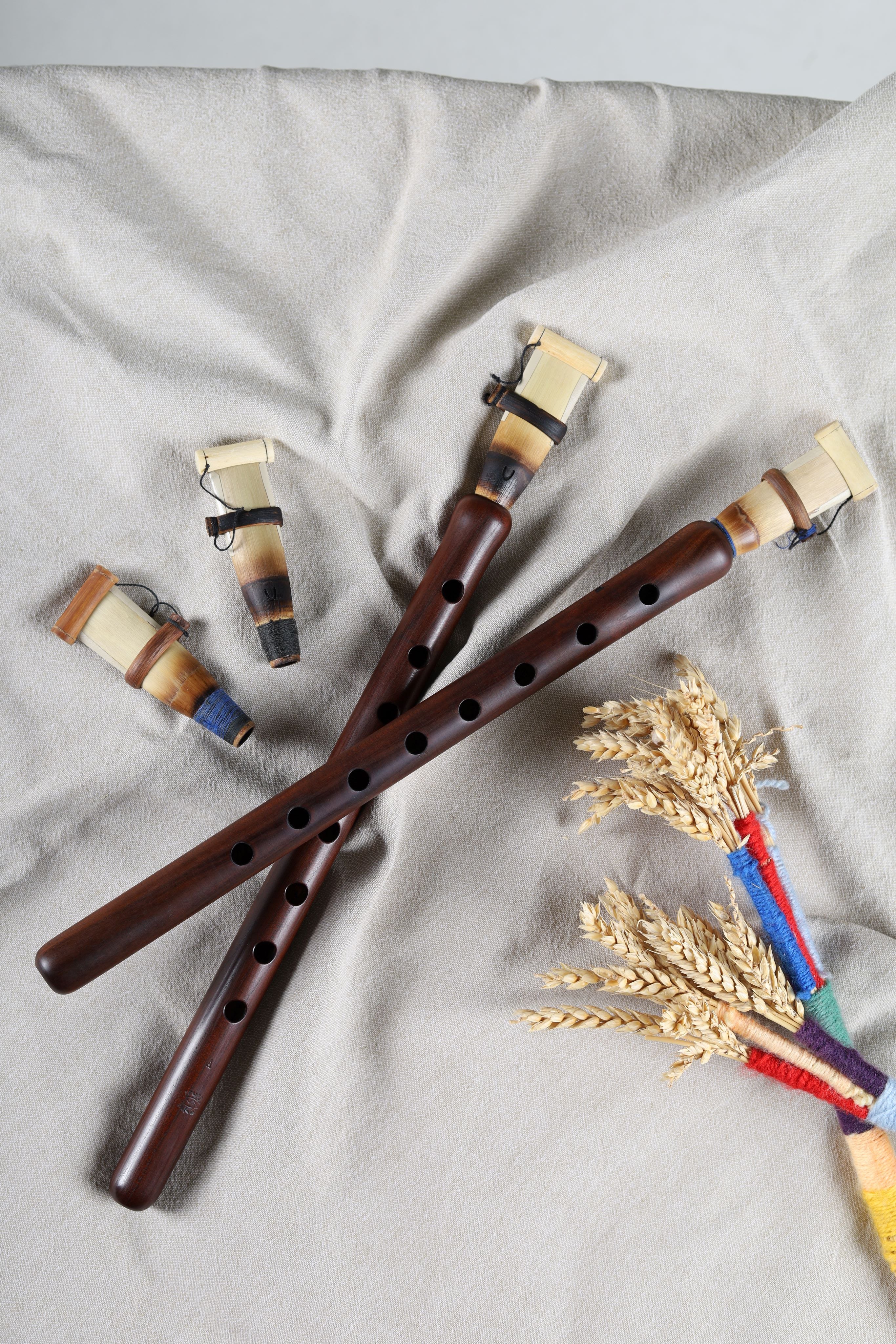Introduction
The Duduk, crafted from apricot wood, requires special care to maintain its acoustic properties over time. Improper maintenance or neglect can affect its tone and sound quality. Here are some practical tips to care for your Duduk and prolong its lifespan.
Oiling Your Duduk
Like many wind instruments, the Duduk requires regular hydration with walnut or almond oil. This step is essential to revitalize the wood and preserve its suppleness.
- Humid climates (e.g., France): Oil your Duduk 4 times a year.
- Dry climates (e.g., Armenia): Oil your Duduk 8 times a year.
Oil also enhances the wood’s natural color. After application, allow the instrument to dry completely for 24 to 48 hours to prevent fingerprints or surface alterations.
Oiling your Duduk is a crucial step that should be performed with care. Begin by pouring a few drops of almond or walnut oil onto a soft cloth or directly onto the instrument. About a tablespoon of oil is sufficient. Spread the oil evenly across the entire outer surface of the instrument using the cloth, making gentle movements to protect the wood.
Let the instrument dry for a few hours. Once excess oil appears, use a soft cloth again to remove it and ensure the oil is evenly distributed. Allow the oil to penetrate the wood fully before using your instrument again, which typically takes 24 to 48 hours for complete drying.
However, avoid over-oiling, as an excess can clog the natural pores of the apricot wood, potentially affecting the Duduk's sound quality. Moreover, it is neither necessary nor recommended to oil the inside of the instrument, as this could alter its acoustic properties and cause irreversible damage to its tuning.
Storage at Room Temperature
The Duduk, like all wooden instruments, should be stored in a stable environment. Temperature and humidity fluctuations can severely damage apricot wood.
• Cold environments: The wood becomes brittle and may crack.
• Heat or sun exposure: Warps the instrument and may affect its tuning.
For optimal storage, maintain a moderate room temperature and balanced humidity levels.
Ventilation and Confinement
Avoid leaving the Duduk confined in its case for extended periods unless it is perfectly airtight. Imperfect seals can allow moisture to infiltrate, damaging the wood over time.
We recommend exposing your instrument to ambient air regularly to prevent deterioration caused by stagnant humidity.
Removing the Reed After Use
After each session, remove the reed from your Duduk. This allows the instrument to air out and dry faster, preventing damage from accumulated moisture.
Do Not Clean the Inside of the Body
Although it may be tempting to clean the inside of your Duduk, especially after long sessions where saliva may accumulate, this is strongly discouraged. The internal walls are handcrafted by expert artisans, and improper cleaning could damage these delicate surfaces and compromise the instrument’s sound quality.

